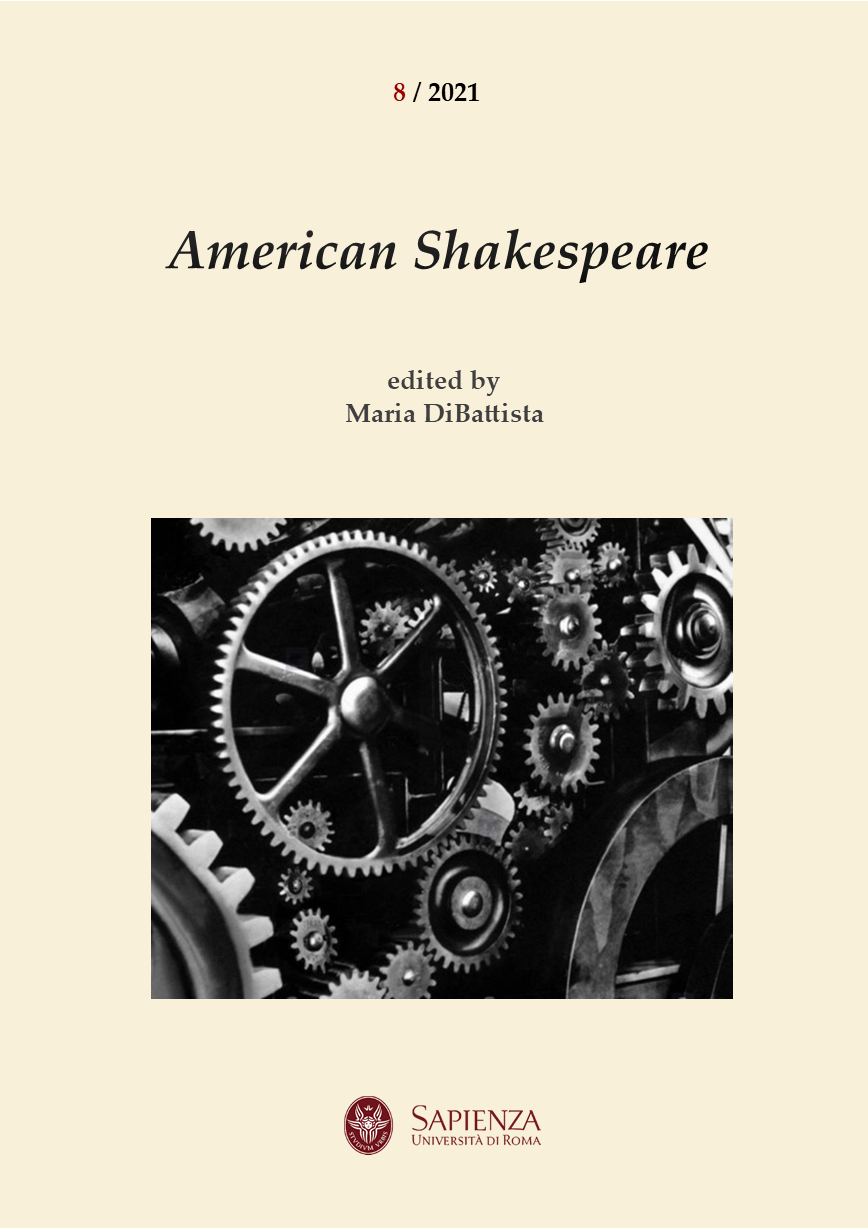Henry James and the Better Part of Discretion
DOI:
https://doi.org/10.13133/2283-8759/17613Keywords:
Sir John Falstaff, The Jolly Corner, The Birthplace, Discretion, DiscretenessAbstract
This article begins with the realization that American students today experience Shakespeare’s dramas in one of two predominant ways, both of which are informed by a scholarly ethos of discretion. One invokes the imperative to set aside any foolhardy desire to pin down the biography of the Bard, unknowable as it is. The other insists on travelling abroad to get to know, if not the man himself, then at least his umwelt, breathe the air he breathed, walk the streets he walked, and dive deeper into ever-frustrated intimacy. Both approaches promote a form of discretion that has little to do with withholding what we do know and everything to do with disclosing what we might know despite all the things we know we cannot know. The trials and opportunities, the acts of courage and cowardice which such discretion imposes upon readers were well-known to Henry James. Scholars have paid due attention to his introduction to The Tempest or his famous short story The Birthplace. But one must also revisit The Jolly Corner through the lens of that champion of discretion, Sir John Falstaff, to better glimpse James’s critique of a trending pusillanimity.


